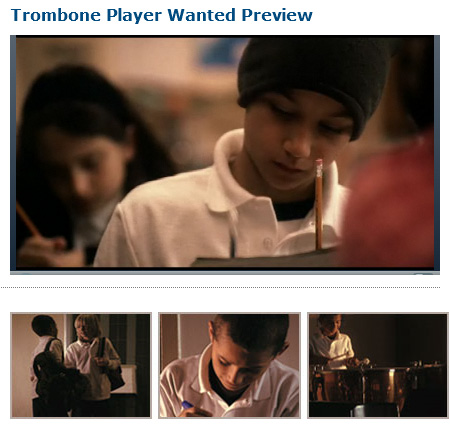From DSC:
The first portions of Kelly Tenkely’s solid blog posting — 17 ways to meet individual learning needs in the math classroom — stirred up some thoughts from a training-related session I was in earlier today. Kelly writes:
Differentiating instruction can be challenging. Student’s educational strengths and weaknesses can be widely varied, making it a difficult task to meet each student’s needs in any given lesson. Math is one such subject area where student skill levels can be very different.
…
For most students, math takes a lot of practice. Unfortunately, the students who need the most practice are the most reluctant to do so because they haven’t been successful in the past. Many of these students have convinced themselves, through negative self-talk, that “I’m just not good at math.” What is a teacher to do with such a mix of skill and comfort levels in the math classroom?
Though there could be several lines of thought that I could pursue here — such as the good and bad sides of self-efficacy, personalized/customized learning, 1:1 initiatives, other — my thought process was most influenced from a training session I had attended earlier today. That session featured a video from Marcus Buckingham’s short-film series entitled Trombone Player Wanted.
Marcus asserts that there are several myths that many of us grow up with (such as our personalities change as we grow; we grow most in the areas of our weaknesses; our teams don’t need us to show up with our strengths, instead they need us to do ____). Marcus asserts that we should identify and develop our strengths (and manage around our weaknesses) — as we seek to create Win/Win situations. This perspective is consistent with my economics training that states that everyone benefits when each one of us does what we do best.
This made me reflect on the massive, systemic pressure most of our current educational environments/policies/curriculums put on students to get everyone to be at the same place. It seems like our systems stress conformity — in the goal of “level-setting” everyone.
This made me wonder:
- Why are STEM-related topics the most important topics being focused on by legislatures and policy-making bodies?
- Why do we attempt to make every child pursue a STEM-related field?
- Why do we assume that students should be interested in a STEM-related topic/course?
- What about all of the other gifts that students bring to the table?
- What if a child could pursue their own passion(s) — STEM-related or not?
I realize that there are basic skills that are very helpful for all adults — balancing a checkbook, being able to read and write, and many other skills. However, the question I started pondering today was…”At what point should we call it quits on a subject area — say that’s good enough — and then allow the students to pursue their individual strengths (rather than try to hammer out performance increases in an area they will rarely use)?”
Examples:
- Does a First Violinist in an orchestra need to know everything about Chemistry?
(If not, what should they know? What is the minimum level that they should know for operations in the “real world” — really — and why?)
- Conversely, does a Chemist need to know everything about Music?
(If not, what should they know? What is the minimum level that they should know for operations in the “real world” — really — and why?) - Does a Computer Systems Analyst need to know everything about Biology?
(If not, what should they know? What is the minimum level that they should know for operations in the “real world” — really — and why?) - Does a Biologist need to know everything about Computer Science?
(If not, what should they know? What is the minimum level that they should know for operations in the “real world” — really — and why?) - Etc.










Great reflection. I am actually following same line of thought lately and wondering why we try so hard to make every single student look exactly the same and then ask them to figure out what their passions are when they enter (or not) college. The problem is now it is VERY expensive to explore and find themselves and their passions. Why aren’t we nurturing students as individuals and recognizing that each of us is uniquely gifted and uniquely talented all the way through school?
I am currently working on a piece of technology that will enable teachers to truly customize learning for every single student.
Thanks Kelly for your insightful comments here; I hear you on several fronts.
I greatly look forward to learning more about your solution(s) to provide truly customized/personalized learning. I’m hoping that such technologies can eventually plug into secure, web-based learner profiles — for accurate, engaging, lifelong learning.
Thanks again Kelly for your comments and your excellent blogs out there!
Daniel